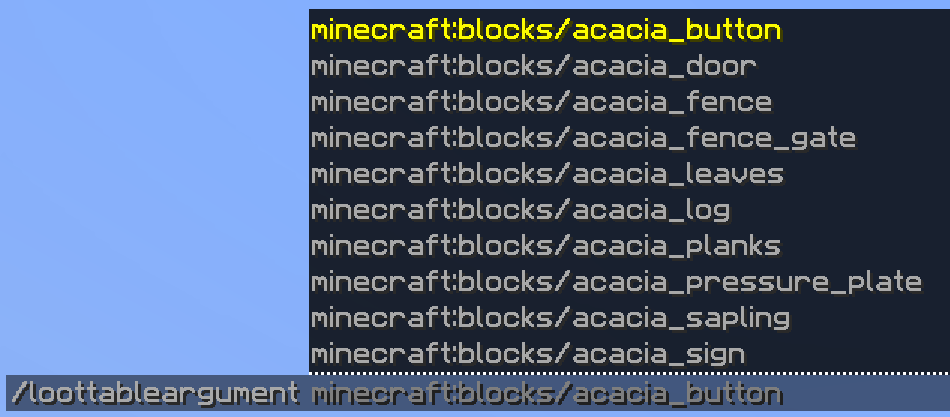LootTable argument

The LootTableArgument class can be used to get a Bukkit LootTable object.
Example - Filling a chest with loot table contents
Say we wanted to write a command that populates a chest with some loot table contents. For this example, we'll use the following command:
/giveloottable <loottable> <location>
We ensure that the location provided is a container (such as a chest or shulkerbox) and then update the contents of that container:
new CommandAPICommand("giveloottable")
.withArguments(new LootTableArgument("lootTable"))
.withArguments(new LocationArgument("location", LocationType.BLOCK_POSITION))
.executes((sender, args) -> {
LootTable lootTable = (LootTable) args.get("lootTable");
Location location = (Location) args.get("location");
BlockState state = location.getBlock().getState();
// Check if the input block is a container (e.g. chest)
if (state instanceof Container container && state instanceof Lootable lootable) {
// Apply the loot table to the chest
lootable.setLootTable(lootTable);
container.update();
}
})
.register();
CommandAPICommand("giveloottable")
.withArguments(LootTableArgument("lootTable"))
.withArguments(LocationArgument("location", LocationType.BLOCK_POSITION))
.executes(CommandExecutor { _, args ->
val lootTable = args["lootTable"] as LootTable
val location = args["location"] as Location
val state = location.block.state
// Check if the input block is a container (e.g. chest)
if (state is Container && state is Lootable) {
// Apply the loot table to the chest
state.lootTable = lootTable
state.update()
}
})
.register()
commandAPICommand("giveloottable") {
lootTableArgument("loottable")
locationArgument("location", LocationType.BLOCK_POSITION)
anyExecutor { _, args ->
val lootTable = args["loottable"] as LootTable
val location = args["location"] as Location
val state = location.block.state
// Check if the input block is a container (e.g. chest)
if (state is Container && state is Lootable) {
// Apply the loot table to the chest
state.lootTable = lootTable
state.update()
}
}
}